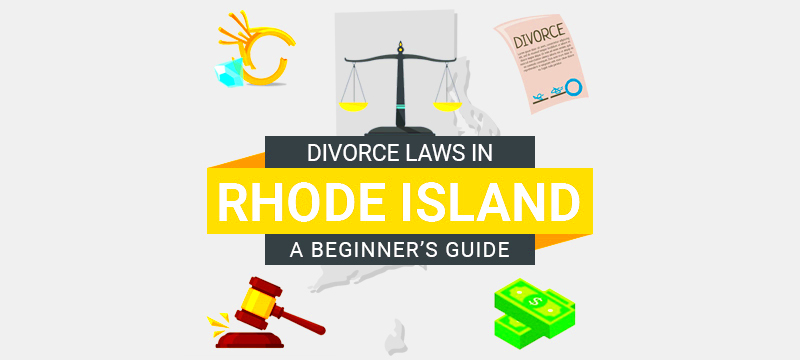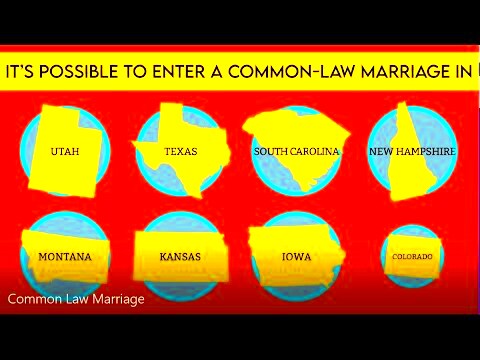Understanding Common Law Marriage in Rhode Island
Common law marriage is a concept that many people have heard of but may not fully understand. Unlike traditional marriage, it doesn’t require a formal ceremony or marriage license. Instead, it’s based on the idea that two people can become legally married simply by living together and presenting themselves as a married couple. But does this apply in every state? In Rhode Island, common law marriage is recognized, but the rules and requirements can be somewhat complex.
What Defines Common Law Marriage in Rhode Island

In Rhode Island, common law marriage is not established merely by cohabiting for a certain number of years. The couple must meet specific legal criteria to be considered married under common law. These criteria include:
- The intent to be married: Both individuals must express their intent to live as a married couple.
- Public representation: The couple must present themselves to family, friends, and the community as being married. This might involve using the same last name, referring to each other as spouses, or filing joint tax returns.
- Living together: Cohabitation is essential, meaning the couple must live together for an extended period, though no exact time frame is specified by law.
While the state does not provide a specific duration for how long a couple must live together, their relationship must demonstrate a commitment similar to that of a traditional marriage.
Key Requirements for Establishing a Common Law Marriage

Establishing a common law marriage in Rhode Island involves meeting key requirements that set the foundation for legal recognition. These requirements include:
| Requirement | Explanation |
|---|---|
| Mutual Consent | Both parties must agree to be in a marriage-like relationship without a formal ceremony. |
| Public Perception | The couple must behave in a way that shows they are married to others, such as sharing finances or introducing each other as spouses. |
| Cohabitation | They must live together, though there’s no legally defined time limit for how long they need to cohabit. |
Failing to meet any of these requirements can make it difficult to prove a common law marriage in court. Each factor is crucial, as they collectively support the couple’s claim to being married under common law.
Legal Rights and Responsibilities of Common Law Spouses

Once a common law marriage is established in Rhode Island, the couple enjoys many of the same rights and responsibilities as traditionally married couples. These rights can cover various aspects, such as property, financial matters, and decision-making. However, with these rights also come significant responsibilities.
Legal rights of common law spouses include:
- Property Rights: Common law spouses have rights to jointly owned property. In the event of separation, property division follows similar rules to formal marriages.
- Inheritance Rights: If one spouse passes away without a will, the surviving partner may have rights to inherit assets as a spouse would in a formal marriage.
- Health Decisions: Common law spouses can make medical decisions for one another, especially in cases of emergencies where one partner is incapacitated.
- Spousal Support: In case of a split, a spouse might be eligible for alimony or other financial support.
Responsibilities of common law spouses include:
- Debt Liability: Just like in traditional marriages, common law spouses may be held accountable for debts acquired during the relationship.
- Parental Responsibilities: If the couple has children, they are expected to share parental duties and responsibilities, including child support and custody arrangements.
Challenges and Misconceptions Around Common Law Marriage

Common law marriage is surrounded by several challenges and misconceptions, especially when it comes to legal clarity. Many people mistakenly believe that living together for a certain period automatically creates a common law marriage, but this is not true in Rhode Island.
Common misconceptions include:
- Automatic marriage by cohabitation: Many assume that living together for a specific number of years results in a common law marriage. In Rhode Island, cohabitation alone is not enough.
- All states recognize common law marriage: A widespread belief is that common law marriage applies across the United States. However, only a few states, including Rhode Island, still recognize it.
- Divorce is not necessary: Some people mistakenly believe that common law marriages can be dissolved informally. Like traditional marriages, a legal divorce is required to end a common law marriage.
Challenges faced by couples include:
- Proving the marriage: Establishing a common law marriage can be tricky in court due to the need for clear evidence of the couple’s intent and public representation as spouses.
- Dispute resolution: Without a formal marriage certificate, disputes over property, inheritance, or custody may become more complicated, requiring substantial proof and legal assistance.
How to Prove a Common Law Marriage in Court
Proving a common law marriage in Rhode Island can be complex because there is no marriage license or official documentation. Courts will look for clear evidence that supports the existence of a common law marriage.
Steps to prove a common law marriage include:
- Presenting joint documentation: Courts may look for evidence such as joint bank accounts, shared bills, or jointly owned property, all of which suggest a committed partnership.
- Testimonies from friends and family: Witnesses who can testify that the couple consistently presented themselves as married to the public can play a critical role in proving the relationship.
- Legal documents: Couples who file joint tax returns, name each other as beneficiaries, or sign contracts together (like leases) may use these documents as proof.
- Intent to be married: The couple’s intention to be considered married is a key element. Proof of verbal or written declarations of their marriage-like relationship can be presented.
Providing strong, consistent evidence is crucial to convince the court of the marriage’s validity. Legal assistance is often needed to gather and present this evidence effectively.
Impact of Common Law Marriage on Property and Inheritance
In Rhode Island, common law marriage can significantly affect property and inheritance rights. Once a couple is considered legally married under common law, they enjoy many of the same property and inheritance protections as traditionally married couples. This is especially important when dealing with shared property and the distribution of assets in the event of separation or death.
Impact on property rights:
- Jointly owned property: If common law spouses own property together, both have a legal claim to it. In case of separation, the property will be divided according to state laws, similar to traditional divorce settlements.
- Individual property: Property owned individually before the marriage typically remains with the original owner unless the couple has mixed it with joint assets during the relationship.
- Debt obligations: Debts accumulated during the relationship may also be shared, with both spouses potentially being held responsible for repayment.
Impact on inheritance:
- Inheritance rights: If a common law spouse passes away without a will, the surviving spouse may inherit a portion of their estate under Rhode Island’s intestacy laws, just as with a formally married couple.
- Disputes over inheritance: Without a will, proving common law marriage can be vital for the surviving spouse to claim their inheritance rights, which can lead to legal challenges if there is no concrete evidence of the marriage.
- Importance of estate planning: To avoid disputes and confusion, common law spouses are encouraged to engage in thorough estate planning, including writing wills and designating beneficiaries clearly.
FAQs About Common Law Marriage in Rhode Island
Does Rhode Island recognize common law marriage?
Yes, Rhode Island is one of the few states that still recognize common law marriage. However, specific requirements must be met for the marriage to be legally valid.
How long do you need to live together for a common law marriage?
There is no set time frame for how long a couple must live together to establish a common law marriage in Rhode Island. The focus is more on the intent to be married and public representation of the relationship.
Do you need a divorce to end a common law marriage?
Yes, even though the marriage wasn’t formalized with a ceremony or license, a common law marriage still requires a legal divorce to dissolve it, just like a traditional marriage.
Can I claim spousal benefits in a common law marriage?
In many cases, common law spouses are entitled to the same benefits as formally married couples, including spousal support, inheritance, and possibly health insurance or pension benefits.
What happens if we move to a state that doesn’t recognize common law marriage?
If you move to a state that doesn’t recognize common law marriage, your marriage may still be valid if it was recognized in Rhode Island. However, legal advice is recommended to understand your rights in the new state.
Conclusion on Common Law Marriage in Rhode Island
Common law marriage in Rhode Island offers a legal path for couples who choose not to formalize their marriage through traditional means. While this form of marriage provides many of the same rights and responsibilities as a formal marriage, it comes with unique challenges, particularly when it comes to proving the relationship in legal settings.
Understanding the legal implications of property, inheritance, and separation is crucial for couples in a common law marriage. To protect their rights, common law spouses should maintain documentation of their relationship and consider estate planning to avoid future complications.
Though Rhode Island recognizes common law marriage, it’s essential for couples to be informed about the requirements and legal processes involved, especially when facing issues related to property, inheritance, or divorce.


